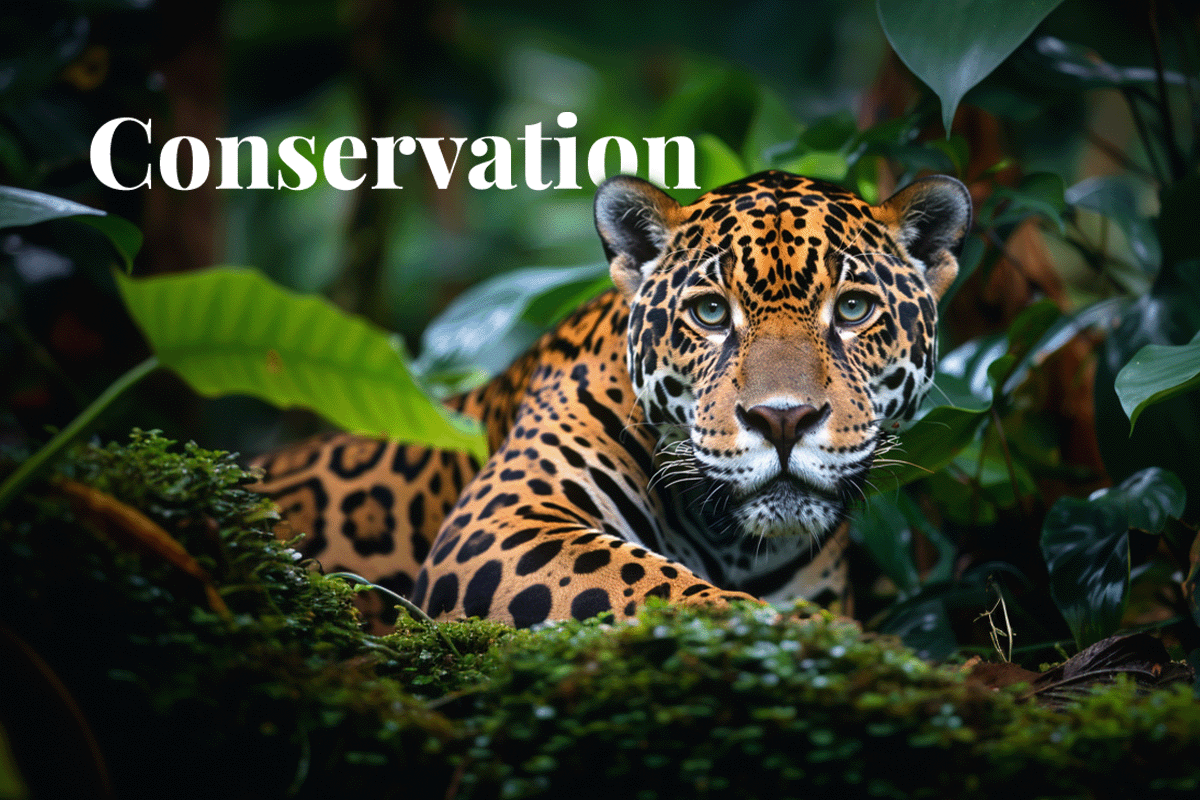In a remarkable stride toward biodiversity conservation, Regen Network has successfully sold a significant portion of its biodiversity credits, specifically designed for jaguar preservation in Ecuador. This initiative spans across a lush 10,000-hectare area in the Ecuadorian jungle, aiming to safeguard the endangered jaguar population.
 Close-up of a jaguar between trees in Ecuador jungle. AI generated picture.
Close-up of a jaguar between trees in Ecuador jungle. AI generated picture.
During an event in Denver, Colorado, in early March, enthusiasts pre-purchased $16,000 worth of these credits, with the total commitment reaching $27,500 by mid-April. This accounts for about two-thirds of the credits initially offered, according to Regen Network's announcement.
Gregory Landua, CEO of Regen Network, expressed optimism about selling the remainder of the credits soon, hinting at the interest of additional corporate purchasers. Early backers, such as Altos Planos and longstanding private clients of Regen Network, are already showing their support through pre-financing the project.
Read more: UK's $31 million lifeline to nature: restoring habitats from grasslands to wetlands
The conservation effort is a collaborative achievement involving Ecuadorian project developer Fundacion Pachamama and the Sharamentsa community of the Achuar Nation. These non-transferable credits symbolise a direct contribution to the conservation efforts in the Ecuadorian jungle, blending a payment for results-based funding with a credit mechanism.
Priced at $0.88 each, around 75,300 credits are expected to be issued for 2024, reflecting the estimated jaguar population density and the community's educational and cultural goals. This initiative is underpinned by the Ecosystem Regeneration Associates Biodiversity Stewardship Methodology, a peer-reviewed, blockchain-based framework for generating ecological credits.
Read more: Nature’s symphony: 15 Interconnected wonders of biodiversity
Highlighting the significance of jaguars as an ‘umbrella species,’ this methodology sets a precedent for crediting projects that conserve such critical species, ultimately benefiting entire ecosystems. The insights gained from this and other pilot projects, such as one in Pantanal, Brazil, will refine this innovative approach to biodiversity conservation.
At the heart of this project is the Sharamentsa community, which envisions the biodiversity credit mechanism as a tool for monitoring jaguars and achieving broader conservation, cultural, and agricultural goals. This initiative is not just about conserving a species; it's about fostering a sustainable model that harmonises ecological preservation with economic development.
As the project unfolds, it may lead the way for more extensive conservation efforts across the Amazon, potentially influencing the future of environmental conservation and indigenous community empowerment.
By recognising the intricate variety and complexity of biodiversity, we can commit to its protection and safeguard the marvels of the natural world. DGB Group, specialising in nature-based solutions, stands at the forefront of this effort, safeguarding and enhancing biodiversity's treasures. One such instance is our Bulindi Chimpanzee Habitat Restoration Project in Uganda, where, through restoration, we restore the natural habitats of chimpanzees, ensuring at the same time harmony between the chimpanzee population and local communities. Through the adoption of innovative strategies, DGB plays a crucial role in maintaining these sensitive ecosystems and promoting the health of our planet and societal welfare. By developing extensive initiatives such as afforestation, reforestation, habitat conservation, and the deployment of energy-saving cookstoves, we aim to rejuvenate ecosystems, shield species at risk, and boost biodiversity.
Join our efforts for a greener future–discover DGB’s carbon units



